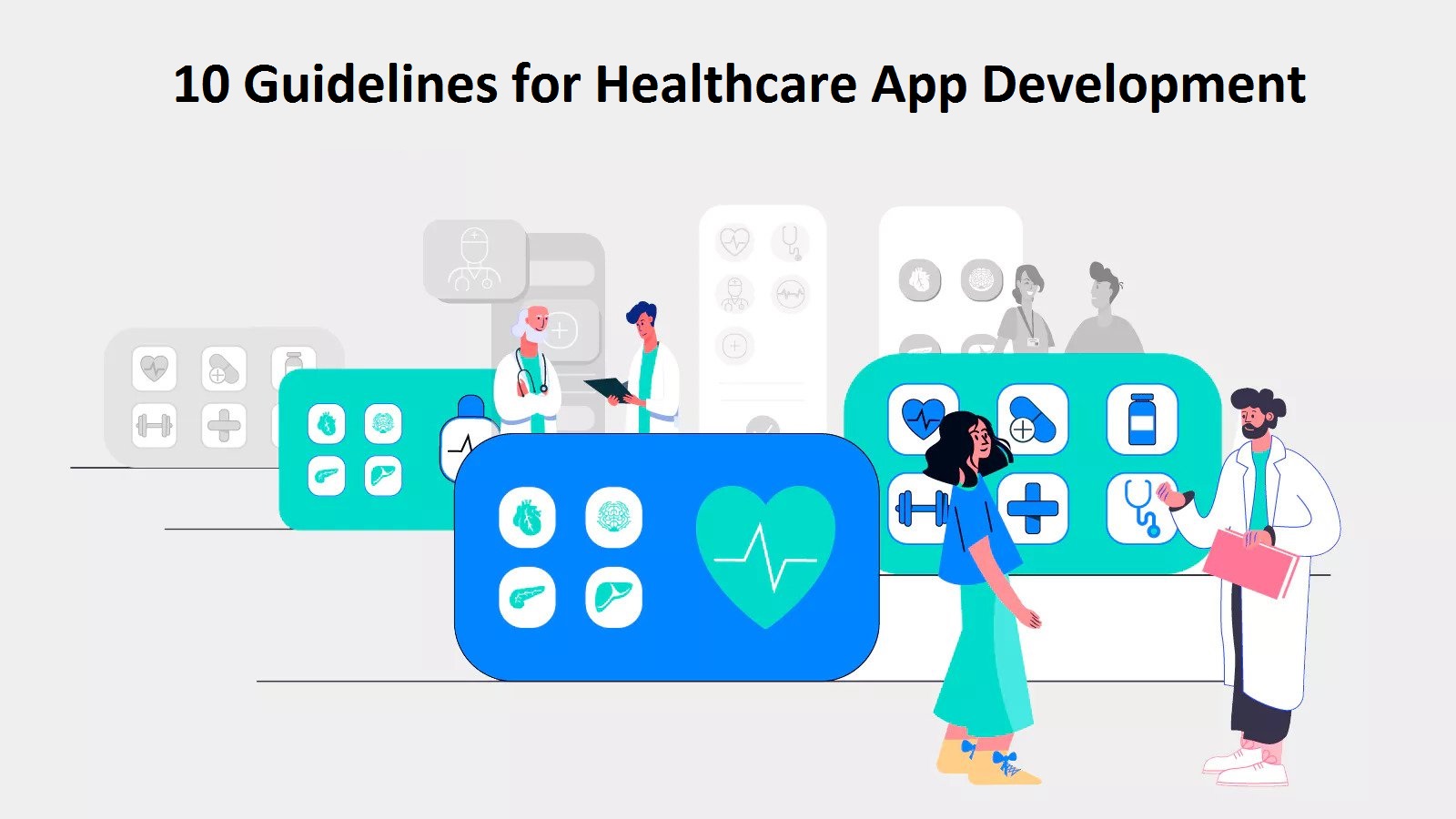According to a report from GMC, nearly 30% of doctors are using mobile apps today. The healthcare industry is now starting to upgrade its reach in the digital industry by developing various healthcare smartphone applications. Health which is also popularly known as Mobile Health is now a popular term in the health industry where you can do medical and public health practices on your smartphone.
And that is the reason, if you are planning to launch your app in the healthcare sector, then it can be a profitable option for you to invest. There are some guidelines you need to follow for your healthcare app development processing. Here in this article, we are to discuss those guidelines which can make your app popular and useful for its users. Let us have a glance at these guidelines below.
Know your Users
There are different types of healthcare facilities serving in different mobile apps. So, it is very vital to set your targeted audience before you are going to build a healthcare app. It is also important to understand how mobile-savvy your targeted users are and their population of them. These things need to be clear before investing your money in developing a healthcare app at the very first stage.
App Usability
After determining your end users, it is time to focus on the usability of the app. Your app should have some effective impact on a critical patient care situation. It can be used for tracking seizures, delivering educational materials for doctors, or classifying patient information in an easily understandable manner. After knowing the adoption level of your targeted audience, ask them about their opinion or whether they feel any difficulty while using your app. This is another tricky way to get the user’s opinion to make your app advanced and comprehensible for its users who do not have much medical training.
Hardware
As a Healthcare mobile app development company, you would be targeting various devices to run it properly like desktops, tablets, or smartphones. You need to design your app according to its users because of their various demands. A smartphone user prefers a high-speed download of required information whereas a tablet user prefers more functionality in your app.
Interoperability
Interoperability is one of the most vital factors to consider with priority to develop a healthcare mobile application. The operable connection of your app with other clinical management systems like doctors, on-duty nurses, front office desk, and ward boys by implementing medical scheduling software is a must-needed factor now.
UI/UX Design
UI/UX design plays a major role in a healthcare app for both doctors and patients to enter their data regularly. You must build your app with an easy-to-use facility to fill up their medical records and appointments. In the same way, a doctor needs to maintain his/her visiting schedule with each patient’s records and condition. So, UI/UX design is the perfect solution that includes fonts, colors, and text which will make the user feel joyous while using it.
API (Application Programming Interface)
Using API components to execute a specific task or interaction with the software to pass the information continuously is the most fundamental subject to running a healthcare application. API is also needed to maintain your authentication and connect your device to a remote server.
Quality and Security Standards
It is good to develop and increase healthcare mobile app capabilities and portfolios for its end users to support. But you need to follow all the apps management and security standards in a centralized system as per the governance policy to make it secure. It can also protect users from various malicious codes or malware while using it.
App Testing
It is always better to test the mobile app’s ability and functionality before introducing it for use. When it comes to a matter of health care application, then it is necessary to test all the possible risk factors, confidentiality, security, and various authenticities. If your app is about fitness tracking, then you need to carefully check the geolocation services and digital accuracy of the app first. You can test your app in poor connectivity areas to check its potential. You can also check its compatibility by using different platforms like Android, iOS, Windows, and other browsers.
Online Response
Whether it is a technical app or a healthcare app, you have to put an option for users to rate your app and comment on your application use. You need to respond to all the comments whether it is good or bad and always write for a solution to the user’s issues if possible. This healthy practice can also help your app developers to include the latest features, options, and facilities for the consumers to make it more powerful and popular in the digital market.
MVP (Minimum Viable Product)
At the very first stage of your application development work, try to avoid investing all your capital in the MVP as it may result in a huge loss if the initial apps are not successful. You can gather knowledge from the user’s feedback to make your app more effective and user-friendly with time.
Summing Up
If you are planning to develop a healthcare app, then it is better to keep all the privacy protection and essential security factors in mind before investing capital in it. These are the basic guidelines to remember and always try to keep your app updated to cope-up with the bugs. If you can provide all the healthcare essentials to the patients, doctors, nurses, or medical persons then there is a high chance to get good revenue from it. Follow the guidelines shared above while developing the healthcare application and make your app the best and most popular in the market.
















